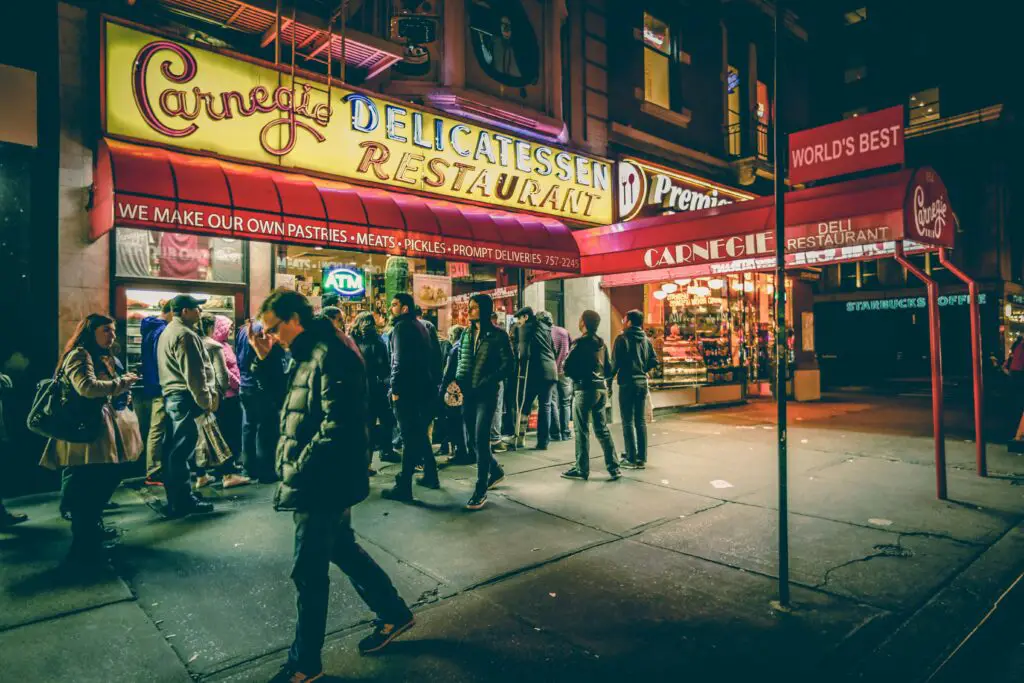Have you ever witnessed someone dine and dash at a restaurant? According to recent polls, 1 in 20 people have walked out on a bill without paying. For some, poor service, forgotten wallets, or simple neglect cause them to leave without paying. For others, the thrill of getting away without punishment is motivation enough. Even small unpaid bills can add unneeded stress on restaurants and wait staff. This makes the issue of dining and dashing a huge problem for the dining industry. For this reason, dine-and-dash laws have been an important topic of conversation among restaurant owners and patrons alike.
Due to the nature of dining and dashing, catching someone in the act can be extremely difficult. Likewise, many people get defensive or even aggressive when confronted with an unpaid bill. To combat this, restaurants have become increasingly creative in preventing dashing customers.
Viral Dine and Dash Video
This clip shows how one restaurant manager tried to hold a woman’s personal property when she attempted to dine and dash.
The couple in the video supposedly tried to dine and dash, although the woman mistakenly forgot her purse at the table. When they returned to retrieve it, the manager asked them to pay their bill in exchange for the purse. As you can probably assume, this created a scene where the manager and the woman argued for some time in the restaurant. At the end of the video, the woman pays the bill in exchange for her purse.
While this couple may have learned their lesson, are restaurants allowed to hold property as collateral like this?
An Attorney’s Opinion
According to TikTok attorney Ugo Lord, two wrongs do not make a right. In other words, just because someone stole from you does not give you an allowance to steal their property as collateral. Thus, experts recommend resolving the issue differently in situations like this.
Ugo Lord explains that property like the purse in the video is legally considered lost or abandoned. Therefore, the restaurant manager could hold the purse until the police arrived without using it to demand payment for the bill.
The couple attempted to dine and dash illegally but resolved the issue by paying, and the restaurant manager returned the purse. However, taking property, even from a thief, is never lawful.
Dine And Dash Laws

To dine and dash is to order and receive a meal without paying. In many situations, dining and dashing take the form of someone sneakily leaving the table while their server is away. In other situations, dining and dashing can be when someone uses another form of trickery to evade a bill.
Although formal dine-and-dash laws do not exist, authorities often label the act under other similar offenses. Most notably, they frequently charge dining and dashing as theft.
Put simply, as soon as someone knowingly leaves a bill, they are guilty of dining and dashing.
Dining and dashing isn’t a victimless crime. Most notably, even small bills have a major effect on the success of restaurants. Over time, repeat dine-and-dashers can eat away at a restaurant’s profits and cause unneeded economic hardship. Some restaurants extend this burden onto the waiter involved, deducting the cost of the meal from their wages. Although federal restrictions limit how much employers can deduct, the waiter still feels the impact. Repeat offenders can also land servers in hot water, possibly costing them their position in the long run.
Since dining and dashing can cause numerous issues for restaurants and their staff, dine-and-dash laws have become increasingly important.
Punishments For Dining and Dashing

For many, dining and dashing may seem like a petty or small-scale crime. On the contrary, the serious impact of dining and dashing has resulted in dine and dash laws that can be pretty rigorous.
If caught by authorities, someone who dined and dashed can face fines of up to $5000 and even jail time. As with most punishments, dine and dash laws reflect the severity and facts of the case. Courts may drop situations involving small bills entirely while imposing more severe punishments for larger sums of money.
As mentioned above, dining and dashing is often labeled under a generic crime title such as “theft”. For most, dining and dashing can result in a misdemeanor. Dine and dash laws also differ by state, with each having a unique level of severity in terms of punishment.
Summary
Dining and dashing is no minor offense. While it may be tempting to walk out on shotty service or save yourself a couple of dollars, it greatly affects restaurants and wait staff. For restaurant workers, it may be tempting to create a scene and take charge of the situation as shown in the video above, however, that is often not recommended by legal professionals or restaurant professionals. Instead, if you witness a dine-and-dash situation, it is recommended to take a photo of the person, call the police, or take some other action to get their information without causing an unnecessary scene.

